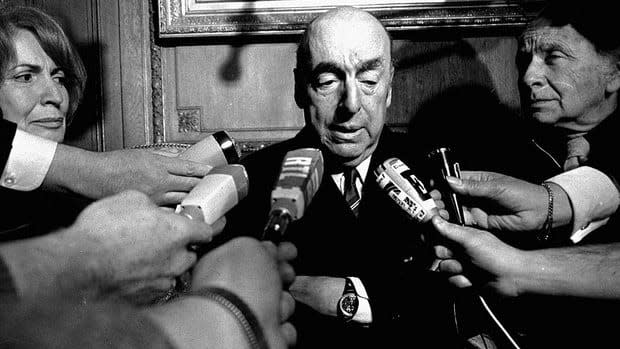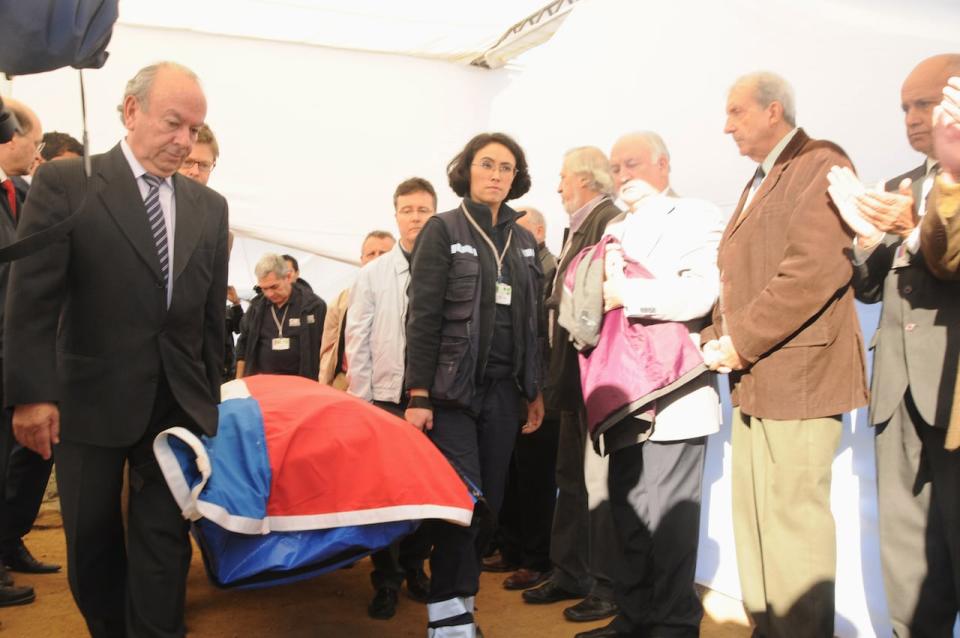McMaster University research fuels new probe into death of Chilean poet Pablo Neruda
- Oops!Something went wrong.Please try again later.
- Oops!Something went wrong.Please try again later.
- Oops!Something went wrong.Please try again later.

A Chilean court has ordered a re-examination of the 1973 death of Nobel Prize-winning poet Pablo Neruda, in part due to the work of McMaster University researchers in Hamilton.
Neruda's cause of death was listed as prostate cancer. It occurred shortly after the military coup that thrust Gen. Augusto Pinochet into power.
After Neruda's body was exhumed in 2013, McMaster anthropology researchers Debi and Hendrik Poinar analyzed tooth and bone fragments and determined botulism-causing bacteria — Clostridium botulinum — were in Neruda's blood. Clostridium botulinum produces dangerous toxins that can attack the nervous system.

Researcher Debi Poinar, shown with husband and biologist Hendrik Poinar, left to right, says their research found Clostridium botulinum, a bacterium that attacks the nervous system, in Neruda's body. (JD Howell)
The Poinars can't say for certain it's what killed the writer and communist politician.
"But on the other hand, why is it there?" Debi told CBC last year while in Chile to present the findings to a tribunal. "It's not a natural organism that should be present in your body for any other reason."
Last month, an Appeals Court in Santiago ordered the reopening of the investigation into Neruda's death, saying new steps could help clarify the cause. It is expected to officially ask scientists who have been studying the poet's remains to continue their research in the coming weeks.
Some family believed he was assassinated
Neruda, 69, had been planning to leave Chile after the military overthrew the Popular Unity government in Chile in the Sept. 11 coup led Pinochet.
A day before he was to leave the country, Neruda, a member of the Chilean Community Party's Central Committee, was taken by ambulance to a Santiago clinic and died Sept. 23.
Neruda was being treated for prostate cancer at the time. But his nephew, Rodolfo Reyes, said some family members always believed he had been murdered after the government of President Salvador Allende, a friend of Neruda's, was overthrown.
More than 40,000 people were imprisoned, tortured or slain throughout the Pinochet dictatorship that ended in 1990.
"My mother's first reaction was that he was assassinated because his cancer was under control," Reyes told CBC News in a recent interview, adding he learned of his uncle's death from a report on the radio.
Neruda won the Nobel Prize in Literature in 1971. Nearly 2,000 people attended his funeral, which is considered one of the first protests of the Pinochet dictatorship.
Manuel Luna, lawyer for Chile's Communist Party, said it's important to get to the truth of what happened.
"It's false to claim he arrived in a critical state at the hospital and died of cancer, and that lie cannot remain on the record," Luna told CBC News.
Researchers ruled out cancer as cause of death
Since 2016, evolutionary geneticists and forensic experts from McMaster and the University of Copenhagen have been analyzing some of the samples to rule out other possible causes of death and look for deadly pathogens.

Rodolfo Reyes, left, Neruda's nephew, carries his coffin covered with the Chilean flag on April 8, 2013, after his body was exhumed. (Communications Division of the Judiciary/Reuters)
The researchers determined Neruda didn't die of prostate cancer. They also ruled out malnutrition before scanning for different types of bacteria that had been used as biological weapons.
As for what Neruda may have experienced if he had died of botulism, Debi Poinar said he would have suffered paralysis or septicemia, a serious blood infection.
There has been little interest in the court case in Chile, where Neruda's legacy has suffered after a memoir was published posthumously in which he admitted to rape.

